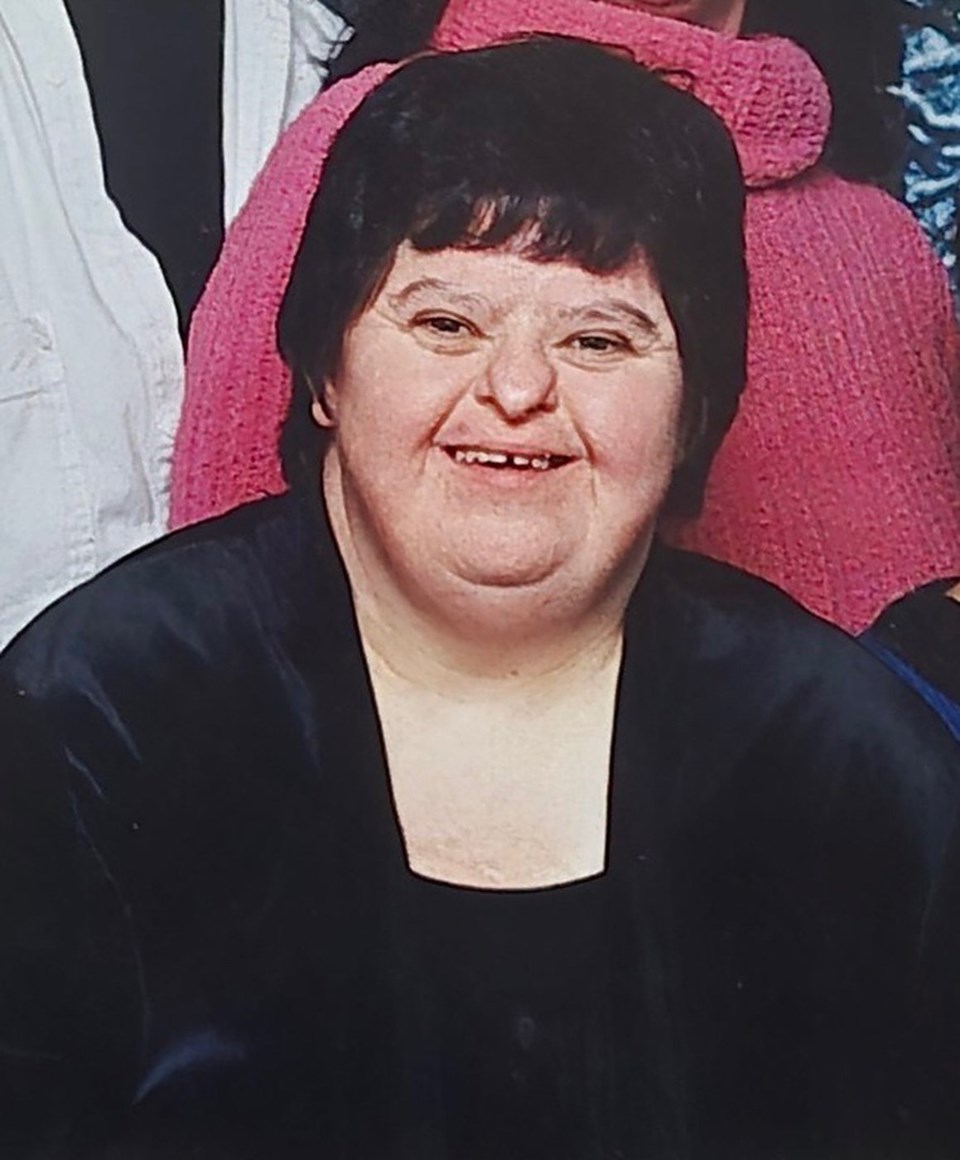A former co-ordinator at the organization that oversaw Florence Girard's home care before she starved to death in October 2018 says "hindsight is 20/20" looking back at a missed opportunity to avert the tragedy.
Krista Maniezzo, who was the shared-living co-ordinator at Kinsight Community Society, told a coroner's inquest that she did not go to see Girard in her room during her last visit to the home that August.
Maniezzo has told the inquest that the trip was to acquaint caretaker Astrid Dahl with Kinsight staff taking over the file, and at the time "there were not alarm bells that were ringing" to go upstairs and check on Girard, who had Down syndrome.
The former Kinsight employee says the last time she saw Girard alive was during her previous visit to Dahl's Port Coquitlam, sa���ʴ�ý, home in February 2018.
Girard weighed about 50 pounds when she died while living with Dahl.
Dahl, who was convicted in 2022 of failing to provide the necessaries of life for Girard, testified earlier that Kinsight didn't provide adequate support for home-sharing care providers, and didn't pay for Girard's prescribed pain medication.
Kinsight was under contract with the provincial Crown corporation Community Living BC to oversee the service under which Girard received her care.
Maniezzo disputed Dahl's testimony, saying on Thursday that she was not aware Dahl had switched Girard's medication from prescribed painkillers to a cheaper over-the-counter alternative, with cost given as a reason.
"There was no such thing expressed to me by Ms. Dahl," Maniezzo said.
"Any kind of concern that she would have had … would have been around some pushback around paperwork and monitoring and those bits and pieces."
When asked by Community Living BC lawyer Kaitlyn Chewka about not going upstairs to check on Girard in August 2018, Maniezzo told the inquest it was "not something … perceived as my responsibility," given she was no longer the co-ordinator for the program at Dahl's home by that time.
She also testified that her workload with other files contributed to Girard's case slipping through the cracks despite warning signs such as Girard's sister also reporting she was having difficulty reaching Dahl.
"Hindsight is 20/20, right?" Maniezzo said. "Reality is that these meetings and these conversations that are happening with home-share providers are not happening while I'm sitting at my desk with files in front of me.
"They're happening while I'm on the road, while I'm driving to and from appointments, while I'm in between monitoring visits with other home-share providers. It's happening amongst a time where I have a caseload of 25, if not more than 25.
"Looking at things now, yes, it should have triggered something, and we should have gone up and opened Flo's door in August 2018. At the time, there were not alarm bells that were ringing."
Maniezzo also told the inquest that about a year before Girard's death, Dahl had increasing trouble keeping appointments with Kinsight, and interactions with the woman's caretaker grew more challenging before Girard's death.
The former Kinsight co-ordinator said while there was "nothing outrageous," Dahl was increasingly resistant to new care requirements introduced a few years before Girard died.
The coroner's inquest, which does not assign fault or blame and the jury is given the goal of fact-finding, is slated to continue through to Jan. 22.
This report by The Canadian Press was first published Jan. 16, 2025.
Chuck Chiang, The Canadian Press



